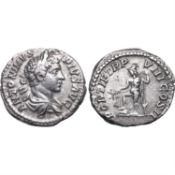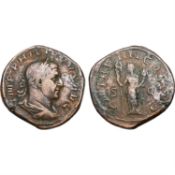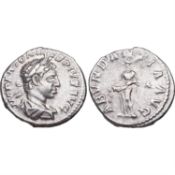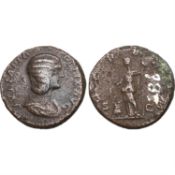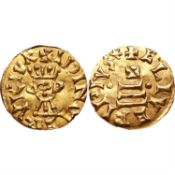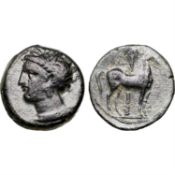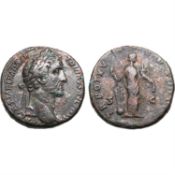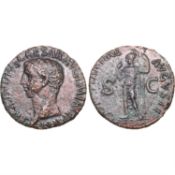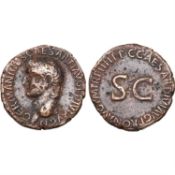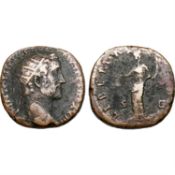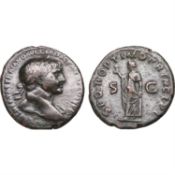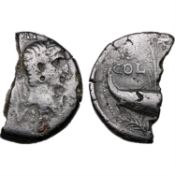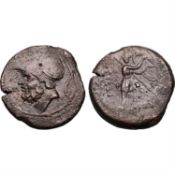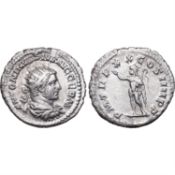A large bronze holy bread bowl. After the Byzantine original. Diameter - 37cm
Sortieren nach:
- Kategorie
- Liste
- Galerie
-
186 Los(e)/Seite
Two Byzantine pottery oil lamps. 7-8th century A.D. 10 x 5 cm & 10.5 x 4cm From the Pescod collect
Two Byzantine pottery oil lamps. 7-8th century A.D. 10 x 5 cm & 10.5 x 4cm From the Pescod collection - purchased from Bernard C. Pickard in 198...
A small Ox-blood Flambe glazed pot. Raised on three stylised feet, with similar knop. Height 7cm
A small Ox-blood Flambe glazed pot. Raised on three stylised feet, with similar knop. Height 7cm
Iron Age 'Cocked-hat' pottery oil lamp. Palestine, C.10th century BC. From the Pescod collection, p
Iron Age 'Cocked-hat' pottery oil lamp. Palestine, C.10th century BC. From the Pescod collection, purchased from the Bernard C. Pickard collectio...
Three Iron & Bronze Age Cypriot pottery Oil jugs. Includes; An Iron age pottery Aryballos. With gre
Three Iron & Bronze Age Cypriot pottery Oil jugs. Includes; An Iron age pottery Aryballos. With grey slip, decorated with concentric circles. 7th...
A vintage late 20th century 1990s terracotta Ancient Egyptian style black cat figurine, floor standing. Painted blue eyes, copper earring to one e...
Marmorrelief, 2./3. Jahrhundert n. Chr.Römisch Mann mit Löwen Höhe 23 cm, Breite 20 cm
MadonnaRom 3./4. Jahrhundert MarmorHöhe 62 cm, Breite 43 cm, Tiefe 20 cmEs handelt sich um eine der frühesten Madonnendarstellungen aus dem spätrö...
TWO EGYPTIAN STYLE CARVED AND POLYCHROME WOOD SEATED FIGURES 20TH CENTURY, IN THE LATE PERIOD STYLE Now set on modern brass bases ...
A PAINTING OF EGYPTIAN FIGURES ON PAPYRUS Depicting Hathor, Isis, Horus and Pharos approximately 110cm high, 218cm wide, 4cm deep ...
Caracalla AR Denarius.
Caracalla AR Denarius. Rome, AD 205. ANTONINVS PIVS AVG, laureate and draped bust to right / PONTIF TR P VIII COS II, Mars standing to left, foot ...
Philip I Æ Sestertius.
Philip I Æ Sestertius. Rome, AD 247. IMP M IVL PHILIPPVS AVG, laureate, draped and cuirassed bust to right / P M TR P IIII COS II P P, Felicitas s...
Elagabalus AR Denarius.
Elagabalus AR Denarius. Rome, AD 220-222. IMP ANTONINVS PIVS AVG, laureate and draped bust to right / ABVNDANTIA AVG, Abundantia standing to left,...
Julia Domna (mother of Caracalla) Æ As. Rome, AD 211-217. IVLIA PIA FELIX AVG, draped bust to right / CEREREM, Ceres standing to left, holding cor...
Visigothic Kings of Spain, Ervigio (Erwig) AV Tremissis. Eliberri mint, 680-687 AD. +ID INMERVIGIVR, crowned facing bust / +ELIVERI PIVS*, cross a...
North Africa, Carthage Æ 15mm. Uncertain mint in Sicily or Carthage, circa 310-280 BC. Wreathed head of Tanit to left / Horse standing to right be...
Antoninus Pius Æ Sestertius.
Antoninus Pius Æ Sestertius. Rome, AD 151-152. IMP CAES T AEL HADR ANTONINVS AVG PIVS P P, laureate head to right / TR POT XV COS IIII, Fortuna st...
Claudius Ӕ As.
Claudius Ӕ As. Rome, AD 50-54. TI CLAVDIVS CAESAR AVG P M TR P IMP P P, bare head to left / CONSTANTIAE AVGVSTI, Constantia standing to left, hold...
Germanicus (father of Caligula) Æ As. Rome, AD 40-41. GERMANICVS CAESAR TI AVG F DIVI AVG N, bare head to left / C CAESAR DIVI AVG PRON AVG P M TR...
Antoninus Pius Æ Dupondius.
Antoninus Pius Æ Dupondius. Rome, AD 153-154. ANTONINVS AVG PIVS P P TR P XVIII, radiate head to right / LIBERTAS [COS IIII], Libertas standing ri...
Trajan Æ As.
Trajan Æ As. Rome, AD 109-110. IMP CAES NERVAE TRAIANO AVG GER DAC P M TR P COS V P P, laureate bust to right, slight drapery on far shoulder / S ...
Augustus and Agrippa Æ broken As of Nemausus, Gaul. AD 10-14. [Head of Agrippa to left, wearing rostral crown combined with laureate crown,] back ...
Bruttium, the Bretti Æ Reduced Sextans. Circa 211-208 BC. Head of Ares in Corinthian helmet to left / Athena advancing to right, spear over should...
Caracalla AR Antoninianus.
Caracalla AR Antoninianus. Rome, AD 217. ANTONINVS PIVS AVG GERM, radiate, draped and cuirassed bust to right / P M TR P XX COS IIII P P, Sol, rad...
Ca. AD 100 - 300. A stunning silver ring composed of a round hoop with a stepped external surface, set with a carnelian intaglio of "Gryllos". The...
Ca. 200 BC - AD 100. A pair of bracelets crafted from solid bronze. They have D-section forms adorned with animal-shaped finials. The animals are ...
EGYPTIAN AMETHYST SCARAB
Middle Kingdom - New Kingdom, Ca. 2055 - 1069 BC. A carved amethyst scarab of ovoid form with naturalistic features with folded wings represented ...
Ca. 550 - 480 BC. A kylix with a more defined lip compared to the rest of the body, standing on a hollow conical pedestal foot with a broad base. ...
Ca. 400 - 300 BC. A red-figure dish with a shallow body seated on a discoidal base and with a flared rim. The main decoration depicts the lady of ...
Ca. 700 BC. An impasto vessel, the form of which is known as an "olpe," with a flat base supporting a piriform body. The vessel exhibits a carinat...
Ca. 1200 - 800 BC. A double-edged spearhead, tapering to a point. A longitudinal mid-rib reinforces the blade, which terminates in a hollow cylind...
Ca. 400 - 300 BC. A krater from Canosa made of purified clay with a globular body and a funnel-shaped neck. Four heads of deities are moulded on t...
Ca. 350 BC. A bell krater, painted in the red-figure style, with white/yellow details on one side. The iconography of the piece reflects important...
Ca. 400 - 350 BC. A red-figure oinochoe. The main decoration portrays the lady of fashion crowned with a stephane and sakkos. The woman also wears...
New Kingdom, Ca. 1550 - 1069 BC. A granite ushabti standing in mummiform with fused legs, holding farming implements for agricultural work in the ...
Mesopotamia, Ca. Early 3rd millennium BC. A cylinder seal depicting a seated deity, a large scorpion and a worshiper. Studied by PD Dr. habil. Pie...
Ca. 470 - 450 BC. An exemplary pottery kylix adorned with red-figure decoration of an oracle scene. The scene depicts a seated youth on an elegant...
Ca. 375 - 350 BC. A terracotta lekythos with a black-glazed background and red-painted decoration. The design features a stylised bird surrounded ...
Ca. 600 - 300 BC. A pair of bronze bracelets. They are in the shape of a spiral with a D cross-section or a polygonal cross-section with a central...
Ca. 330 - 300 BC. A Xenon ware miniature pottery kantharos. The vessel has a globular body elevated on a small circular foot, with two high-archin...
ROMAN SILVER SPOON
Ca. AD 200 - 500. A shallow spoon made from silver, known as a cochlearium in Latin. The bowl is shaped like a rounded flask in cross-section, and...
APULIAN KANTHAROS WITH NIKE
Ca. 400 - 350 BC. A red-figure kantharos boasting a pair of sweeping high handles with support struts, and moulded maskettes at the interior join ...
Ca. 350 BC. A terracotta lekythos with a rounded body and a narrow neck tapering into a pronounced mouth. The central register depicts a profile p...
Ca. AD 100 - 300. A bronze shaver with a polygonal lower blade and a lion-shaped handle. The handle has an elongated body with a raised head, and ...
Ca. 700 - 600 BC. A stamnos, also known as a lebês gamikos, is a vessel inspired by Corinthian pottery from the Italic geometric period. This exam...
Ca. 700 BC. A ceramic kantharos, a deep vessel with distinctive high openwork twisted handles, meant for consuming wine. This example has a protru...
GREEK BLACK GLAZE LEBES WITH LID
Ca. 400 - 300 BC. A wheel-thrown pottery lebes gamikos with a squat footed base, a gradually widening body with a concave shoulder, a raised lip d...
MESOPOTAMIAN STONE MACE HEAD
Ca. 3600 - 3100 BC. An inverted pear-shaped mace head made of a cream hard stone with a drilled central hole and a smooth surface. The piece has a...
Ca. 370 - 350 BC. A black-glazed terracotta jar with red-figure decoration. The lower body is encircled by wave bands, while the upper body featur...
Ca. 500 - 400 BC. A pottery skyphos covered with a black glaze and decorated with red-figure owls. Each is flanked by vertical laurel branches. Th...
New Kingdom, 19th Dynasty, Ca. 1292 - 1190 BC. A limestone ushabti with extraordinary original pigment preserved, featuring black-painted hierogly...
Ca. 350 - 300 BC. A kylix with a shallow body seated on a discoidal foot and completed with two horizontal handles. The main decoration depicts a ...
Ca. 3000 - 1000 BC. A bronze bracelet formed as a round loop with a small opening. At each end of the bracelet are stylised animal heads, featurin...
Ca. AD 100 - 300. A silver ring with two snakes intricately coiled around each other, designed in a naturalistic and detailed manner. Each scale i...
Ca. 350 BC. A large bell krater, painted in the red-figure style, with white/yellow details on one side. The iconography of the piece reflects imp...
Ca. 800-700 BC. A kyathos, a single-handled dipper with an interestingly shaped conical foot. This is a very early example of a vessel shape that ...
Ca. 1200 - 800 BC. A lengthy, leaf-shaped bronze spear point with angular shoulders, cast as a single piece. A prominent midrib extends into a lon...
End of XXXth Dynasty/Beginning of the Ptolemaic Period (Ca. 379 - 280 BC). A faience ushabti with a tall, mummiform stance atop an integral rectan...
EGYPTIAN LIMESTONE USHABTI
New Kingdom, Ca. 1550 - 1069 BC. A carved limestone ushabti figure standing in mummiform with fused legs and feet protruding from the base. The fi...
Ca. 200 AD. A finely carved in extremely high relief 'virtually in the round' section of a marble sarcophagus depicting the god Eros (Roman Cupid)...












